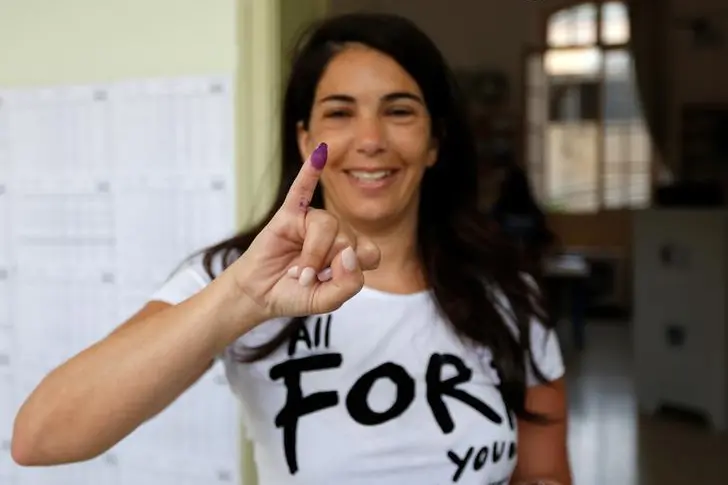PHOTO
BEIRUT: Lebanon should hold next year's general elections on time and voters should look to the polls as an opportunity to hold politicians accountable, the UN Special Coordinator for Lebanon said.
We perceive elections as a choice but also for the people; its an opportunity to hold elected representatives accountable, [and] we encourage the organization of elections, Joanna Wronecka said, adding that the UN is ready to help Lebanon with the preparation of free and transparent elections, which are scheduled to begin with a general election in May 2022.
The elections will include separate municipal, Parliament, and presidential elections, but the countrys current political crisis has led some to question whether the dates will be upheld.
Commenting on whether the elections will be a moment to uproot the stagnant political system, Wronecka said the vote is the most appropriate, democratic way of organizing the political life, of course with the participation and involvement of the whole citizens.
Wronecka was speaking at a panel session on Lebanon convened by the SDG Media Zone. The full session will be broadcast next week.
The Polish ambassador began her position as UN Special Coordinator in June, succeeding Jan Kubis two-year tenancy.
Over the last two years Lebanon has undergone one of the most tumultuous periods in its modern history; a deep economic depression alongside a political crisis worsened by the coronavirus pandemic and the shocking explosion in the port of Beirut last summer.
The impact of decades of state level corruption and mismanagement of public funds began to appear in 2019 when Lebanon inched toward financial downturn, which then tumbled into what the World Bank has called one of the top 10 financial depressions globally since the 1850s. The World Bank likened the country's financial and social regression to that of a post-conflict state.
As a result of Lebanons fragile situation, the UN and other allied nations, led by France - Lebanons former colonial power - have stepped up efforts to pressure the political class into action.
The UN with the expertise of UNDP can help Lebanon of course to organize transparent and free elections. In my discussions of course I always mention the fact the elections should take place on time, Wronecka said.
For 10 months the countrys fate has been in the hands of a caretaker government, as political infighting has hindered the formation of a new government which has only aggravated the crises.
Furthermore, the International Monetary Fund, the US and France, have offered Lebanon financial support to bolster the decaying economy and deliver desperately needed relief to residents, half of whom have been pushed under the poverty line.
But the international community has asserted that unless interventions come from the inside, the political stalemate and mismanagement that has caused the countrys downfall will prevail and risk degrading living conditions further.
The initiative - I will repeat - the initiative should come from the Lebanese, because its about the prosperity of the country, and its also about their ownership. When people feel there is ownership, inclusion ... this will bring real permanent change, Wronecka stressed.
Some are viewing 2022s elections as a chance for independent movements to gain traction and potential parliamentary seats, in line with the popular uprising of October 2019 that saw hundreds of thousands of Lebanese call for the ousting of the old sectarian party lines, which many blame for today's crisis.
In the democratic systems the elections are perceived as a more effective way first of all for citizens to participate in the political life, but also to actually achieve change, Wronecka said.
Copyright 2021, The Daily Star. All rights reserved. Provided by SyndiGate Media Inc. (Syndigate.info).





















